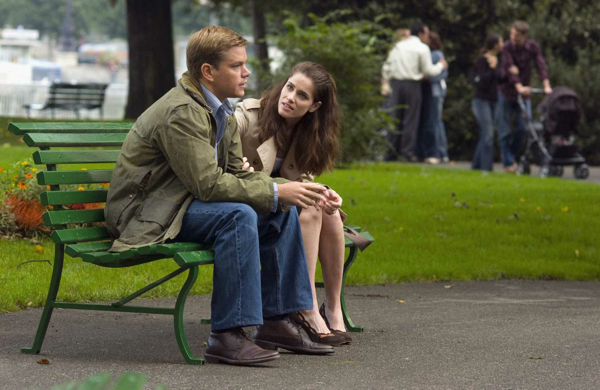Movie review by Greg Carlson
An ambitious and complicated tale of corruption in the big oil industry, writer-director Steven Gaghan’s “Syriana” is a mostly thrilling, always interesting ensemble film that has much to say in its 126-minute running time. Linking together CIA operatives, Texas petroleum executives, Beltway attorneys, Islamic terrorists-in-training, slippery politicians, and wealthy Gulf princes, “Syriana” weaves an intricate web of overlapping tales. Similar in style to “Traffic,” which earned Gaghan a screenwriting Academy Award, “Syriana” expertly balances its interest in world-stage economic power gamesmanship with pulse-quickening, spy-game suspense. Impatient filmgoers might find the multiple plotlines distracting, but Gaghan’s efforts add up to a smart, terrifically entertaining movie.
Based on former CIA agent Robert Baer’s bestseller “See No Evil,” “Syriana” features George Clooney as a longtime spook who has spent his career doing very dangerous things in the world’s most hazardous countries. As Bob Barnes, Clooney anchors the film’s scariest plot thread, and given 2005’s coverage of prisoner and detainee torture, much of what his character experiences feels eerily authentic. Matt Damon plays an energy expert who consults the son of an emir (though no country is specified, the vibe is heavily Saudi Arabian). In the least flashy of the three juiciest parts, Jeffrey Wright is beautifully subtle as a corporate lawyer discovering all kinds of dirt during a gigantic energy company merger.
A number of other well-known faces, including Chris Cooper, Christopher Plummer, Amanda Peet, and William Hurt, appear in smaller – but still essential – roles. Alexander Siddig, as Damon’s royal employer, Akbar Kurtha, as Siddig’s younger brother and rival for the throne, and Mazhar Munir, as a young, troubled, migrant from Pakistan, are also well-cast. Munir’s journey from the oil field where he loses his job to the madrasa where he first hears the teachings that radicalize him to his chilling final destination provides one of the movie’s most thought-provoking arcs.
One of the strongest aspects of Gaghan’s storytelling emerges from his unwillingness to simplify characters as “good” or “bad.” While it is fair to say that the career politicians are never made to smell like roses, almost all of the major characters work from the convictions of their own reasons (to paraphrase Jean Renoir). The result allows viewers to come to their own decisions about what makes these folks tick. Gaghan also gives us just enough of the mundane – the uneasy relationship between Wright and his alcoholic father, for example – for us to see ourselves in these otherwise extraordinary people. In this sense, the multiple points of view are no detriment to the film.
If “Syriana” leaves anything out, it must be the idea that U.S. intelligence-gathering in the Middle East has been inadequate to the point of ineffectual. Granted, the sweep of Gaghan’s spin rests squarely on the greed-is-good fraudulence committed while the government looks the other way (Tim Blake Nelson delivers a rousing speech to this end), but the implications for national security lurk especially in the margins of Munir’s tale. Iraq is never directly mentioned in the movie, but its massive shadow looms large.
